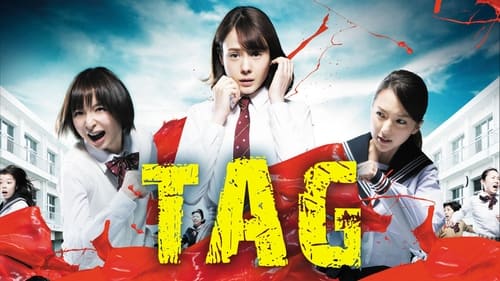ThiefHott
Too much of everything
Stoutor
It's not great by any means, but it's a pretty good movie that didn't leave me filled with regret for investing time in it.
Borserie
it is finally so absorbing because it plays like a lyrical road odyssey that’s also a detective story.
Kinley
This movie feels like it was made purely to piss off people who want good shows
batuhancanliturk
There are many problems comes with the gender inequality. We can observe in several fields that most problematic and universal one is sexual objectification of females. Besides the worldwide impact of female objectification in advertising, we view it in movies, too. Apart from the motion pictures, porn industry has been expanding all around the world. Due to this fact, different kind of fetishes can be seen and they can be assimilated as normal behaviors. "Riaru onigokko" is a brute criticism of how the female objectification and fetishism can be gone to extremes.Female sexual objectification is viewing women as a desired object or toy - like in the movie- rather than an individual human being. According to feminist cultural critic Robert Jensen, the expansion of female objectification is because of the mass media and advertisement companies (1997). We see that women are shown weak and vulnerable to make objectification stronger. In the movie, men created a game to both making money on female sexual objectification and using females like a toy for fulfilling their satisfactions. No woman lives among the men's world. All women are seen as toys and nothing more. They act in a way that females can not have autonomy. Main characters of the game are always in danger. They act as an instrument of the game rather than having unique personality. They can be replaced by other women. These are the example of features for person objectification that are defined by american philosopher Martha Nussbaum (1995). Pornography also is an important case in the feminist discussions about female sexual objectification. Anti-pornography feminist Andrea Dworkin mentions that since men watch porngraphic content, women are seen as a mere tool for their purposes (1989). In the movie, we see that school girls with their uniforms which is the most popular fetishism indicator among the Japan men. They use it in every movie whether in a sarcastic way or specifically to attract men. This is not only fetishism example in the movie. At the end of the movie, we observe that man is crazy about having sex with the game character. In Japan, they have virtual pop stars and people love them. Most popular one is Hatsune Miku who is a virtual idol. Thousands of Japanese people fill the concert area to watch holographic star. They bought special stuffs which are produced for Hatsune Miku. Cosplays of her are also made. With this example, witnessing for the virtual madness of Japanese people is an inevitable fact. Lastly, adding one more discussion about the female objectification can be useful for understanding the outcomes of it. There is an objectification theory which is defined by Barbara Fredrickson and Tomi-Ann Roberts in 1997. Theory consists of the conclusions of female objectification. Women who experiences sexual objectification, think that they should show their bodies because of the mentality which defines body as an initial view. Adopting the problem in this manner creates bigger problems. Females start to see their bodies as objects which should be used to be served. That leads self-objectification. This self-objectification can be seen as an empowerment of females, however it led birth of "raunch culture". Encouraging sexual representations of women for the various platforms is the main understanding of the raunch culture. This is even especially promoted by women. Making nudity available in advertising is the most known example for the effects of raunch culture. In conclusion, gender inequality is the reason behind the female sexual objectification. Females are used in different ways as a mere means by males. For some countries, cultures are formed with this mentality to ensure male dominance over females. Fetishm can be observed in different forms like we saw in the movie or in virtual popstar example. On the other hand, self-objectification is the result of female objectification in long run.
Guy Teague
i love apocalyptic dystopias and time travel and, of course, Japanese schoolgirls in their uniforms and blood and gore if it's ironic. throw in an unreliable narrator and you've hooked me. and i was hooked all the way in this movie. i kept stopping it to shoot frames--many of which i plan to use for memes on facebook, they're so pithy. most from 'sur' of course!towards the end i suspected it might fall apart when the big reveal came, but every time i formulated a guess, it would twist slightly and, although i'm not about to reveal anything, it was not only not a cheap cop-out, some serious issues were raised about the future and us as a society.btw, the only movies i give 9s to are epics such as lotr, for geniuses such as kubrick, and the occasional quirky black comedy. this movie earned the 9 from me fair and square with its imagination. my only quibble is i wish they could have afforded better effects in a lot of places, but the bus scene jerked me bolt upright in my chair and that was the intended effect, so they got their money's worth./guy
Alfonso Rodriguez
I'm not a fan of Japanese movies, so let's be clear on this from the beginning. I was recommended this film by a friend, and before renting it I watched a trailer on YouTube. The trailer, which happens to be the 3 minutes of the title, is really powerful, and if somehow, you can extrapolate the goodness of the movie from the trailer (you and me know that we can't), you'd thing that this is an OK movie, at least. But don't be fooled, the 3 minuets shown there are the only minutes worth while, perhaps some aerials that we see at the beginning can count, but nothing else. The plot is very meaningless, and I suspect that maybe to a Japanese audience could make more sense, but to some occidental mind it does not and is a meaningless teenage movie, at best. If you can skip this film, go ahead and do it, you won't loose nothing.
Christian
With an opening sequence that tops 'Suicide Club" in shock value, aesthetics and eeriness, "Tag" targets a gore-hungry audience, but goes deeper with the many philosophical and psychological themes of determinism, power, fear, reality and identity."Tag" tackles greater issues than most films and does so well with a brisk pace that takes the viewer along the joyride (or hellride depending on how you see it) and makes him/her identify with the lead character's distress. The three leads who play the same persona are very well cast and effective in edging us into our seats. Their acting is grounded while the rest of the movie is often over the top at parts.The daring premise, edgy editing, themes and tones are strong, yet Sono falls slightly short of his best work by making a clearly uneven piece at times with some easy thrills and instances with little coherence or content sneaking in. He proves showy, self-indulgent, eager to please the crowd and even uses questionable short-cuts instead of going deeper into the surreal, suspenseful and sublime narrative.We are left with many questions like many of Sono's films, but in this case, we also understand that perhaps he could have asked himself more questions in the making in order to overcome some unwanted extraneous confusion and loss of focus. This is especially troublesome as it clocks less than 90 mins (uncharacteristic for long-winded Sono - see 237 mins "Love Exposure" as extreme example) and still shows some filler farce instead of sure hit fire-power.Some superficial moments over subtlety and substance holds this film back, but the brute force and fantastic screen-writing and directing defy denying this fresh film its place into the pantheon of path-breaking provocative piece of cinema.Despite its minor and more blatant flaws, this film holds well to a metaphorical mirror and is not in search of identity like its main character. It is disconnected beyond its useful purpose, but parades around arguably able to arouse sympathy and separately speak volume on our psychological individual and societal brink of breakdown.Try to be spontaneous. Accept the surreal and tolerate the slapstick and silliness.Japan 2015 | 85 mins | FANTASIA INTERNATIONAL FILM FESTIVAL | DCP | Japanese (English subtitles)








